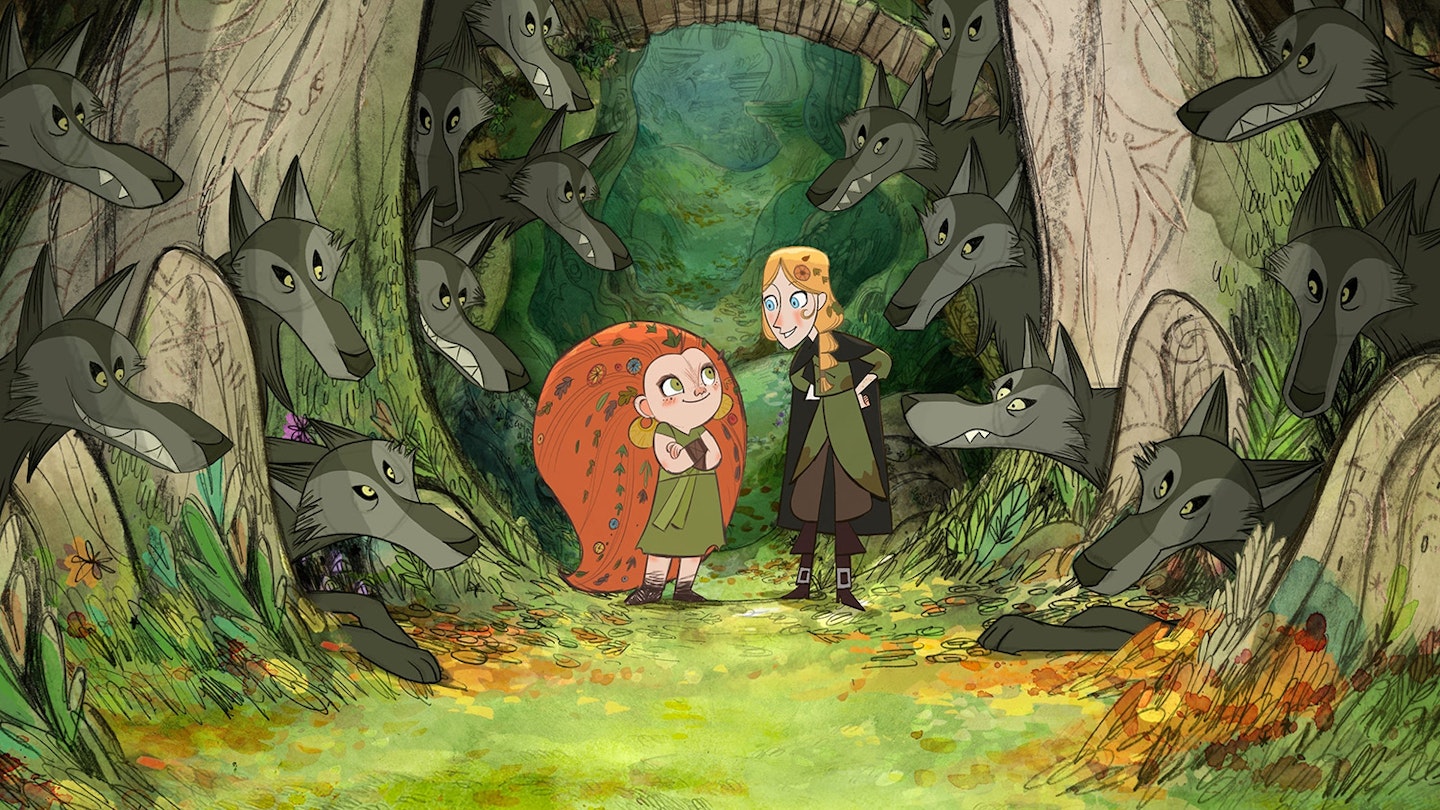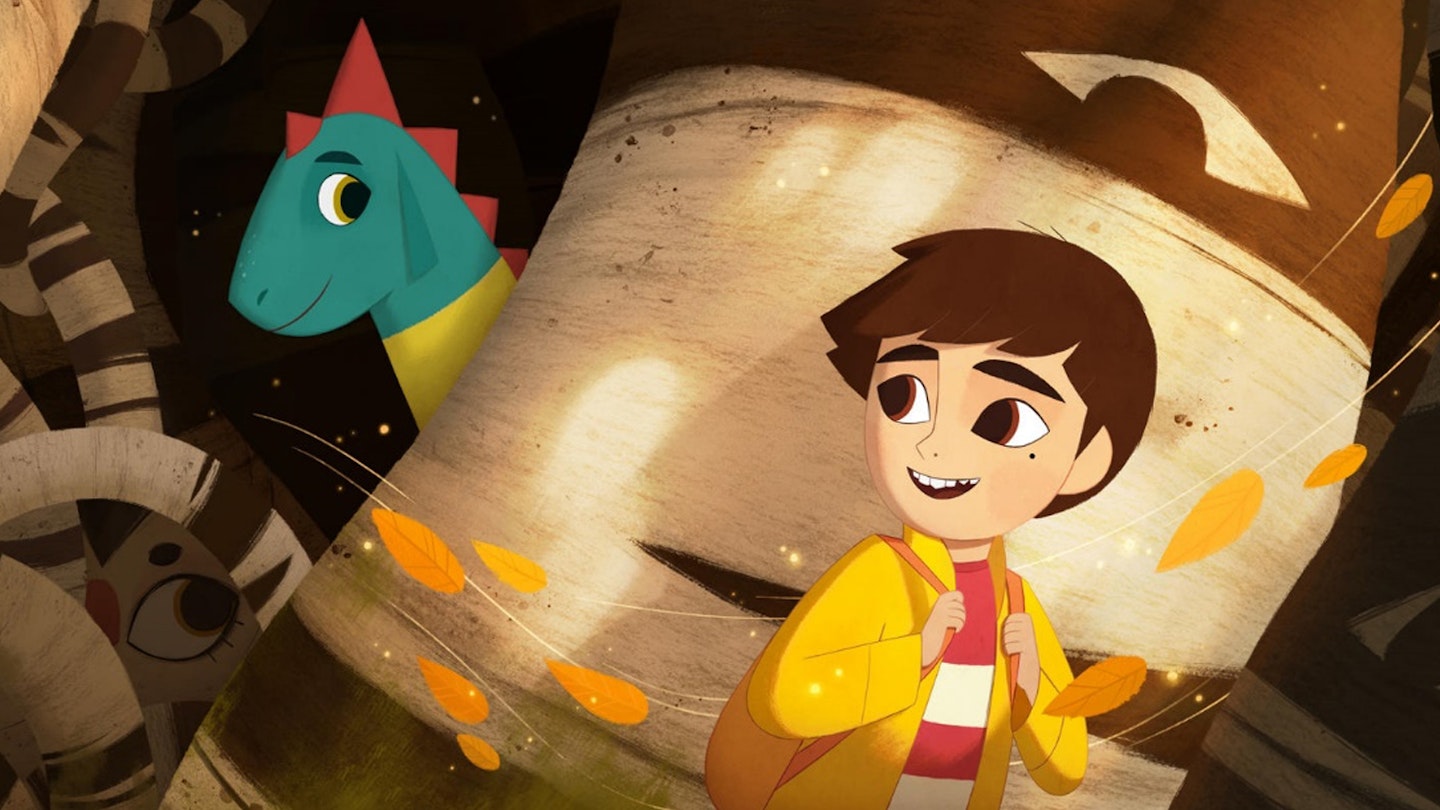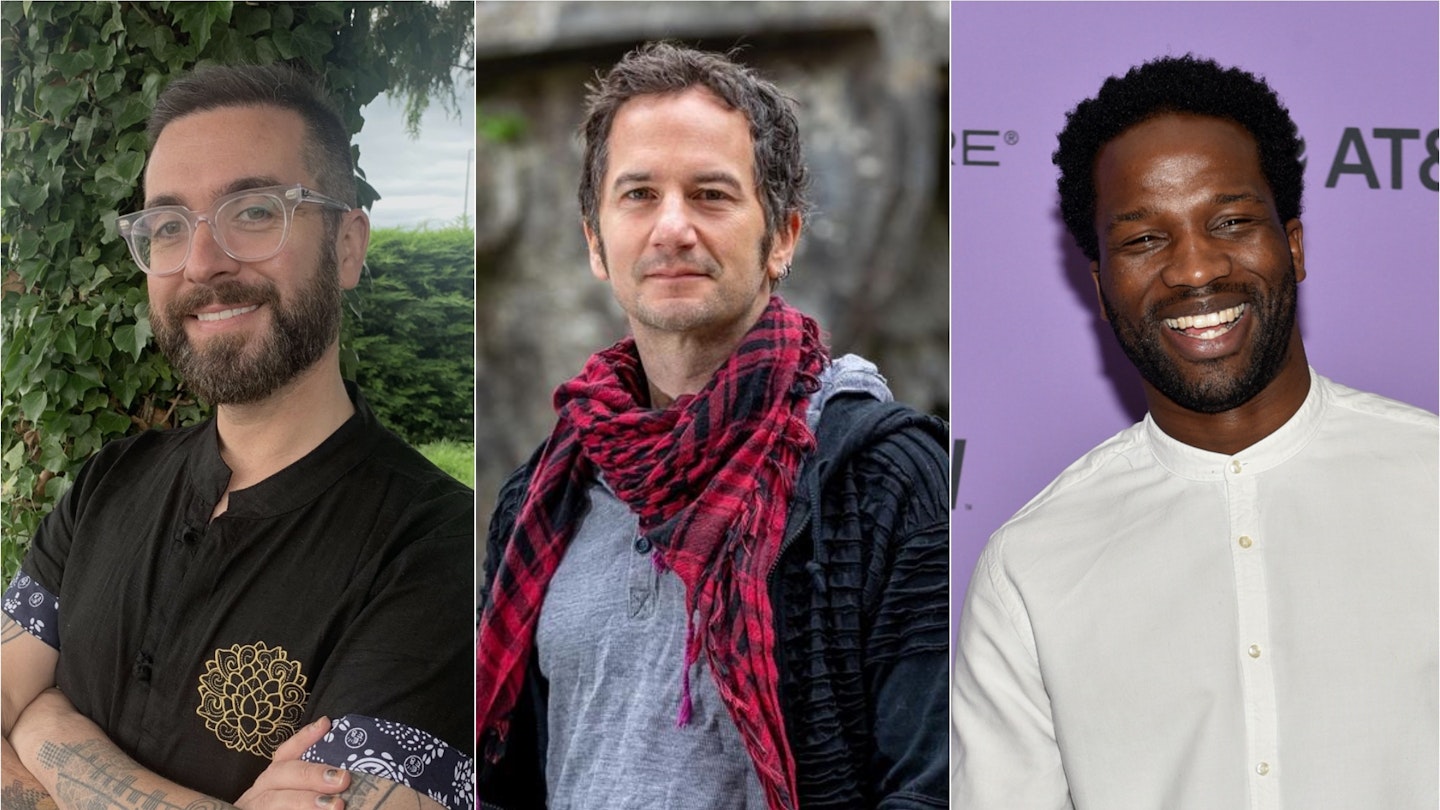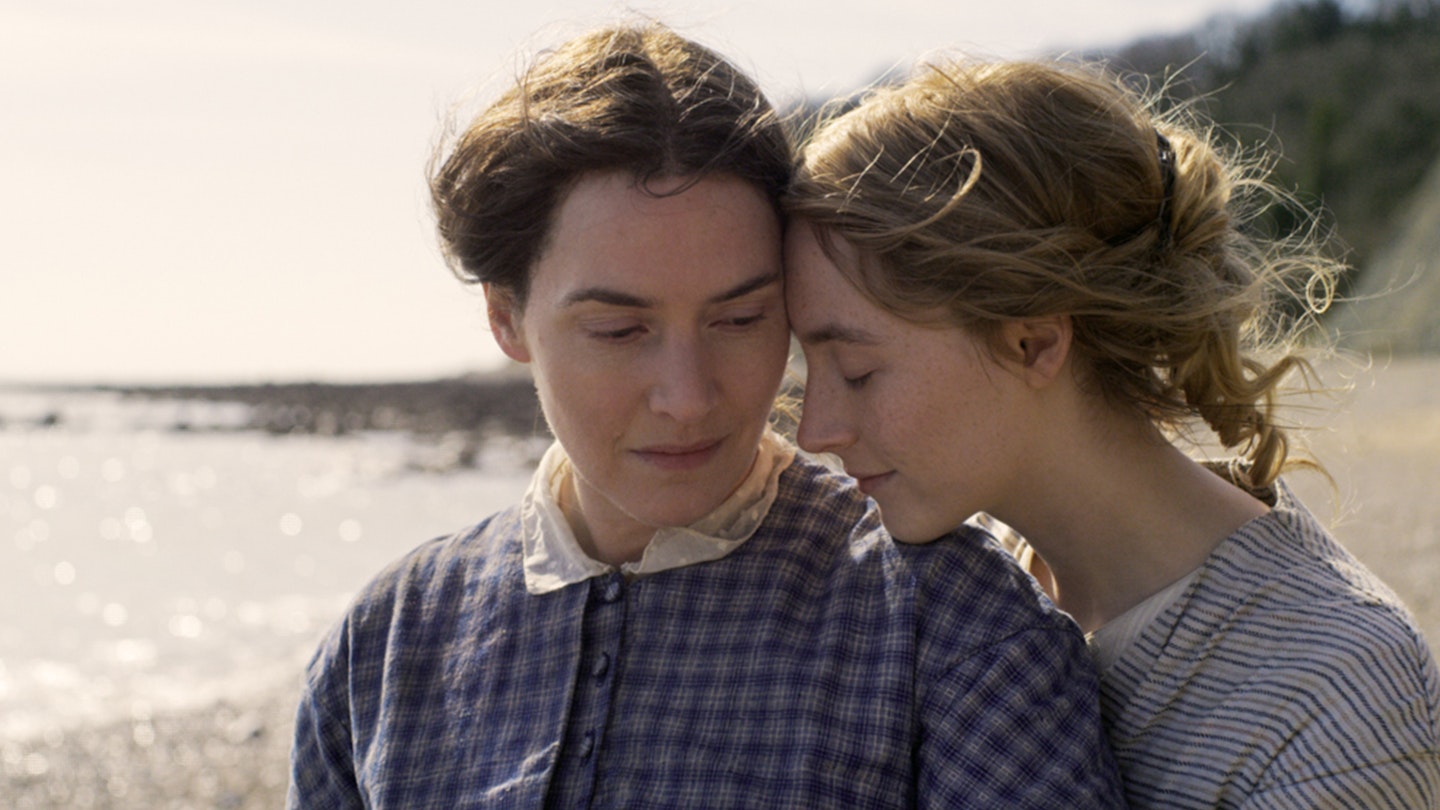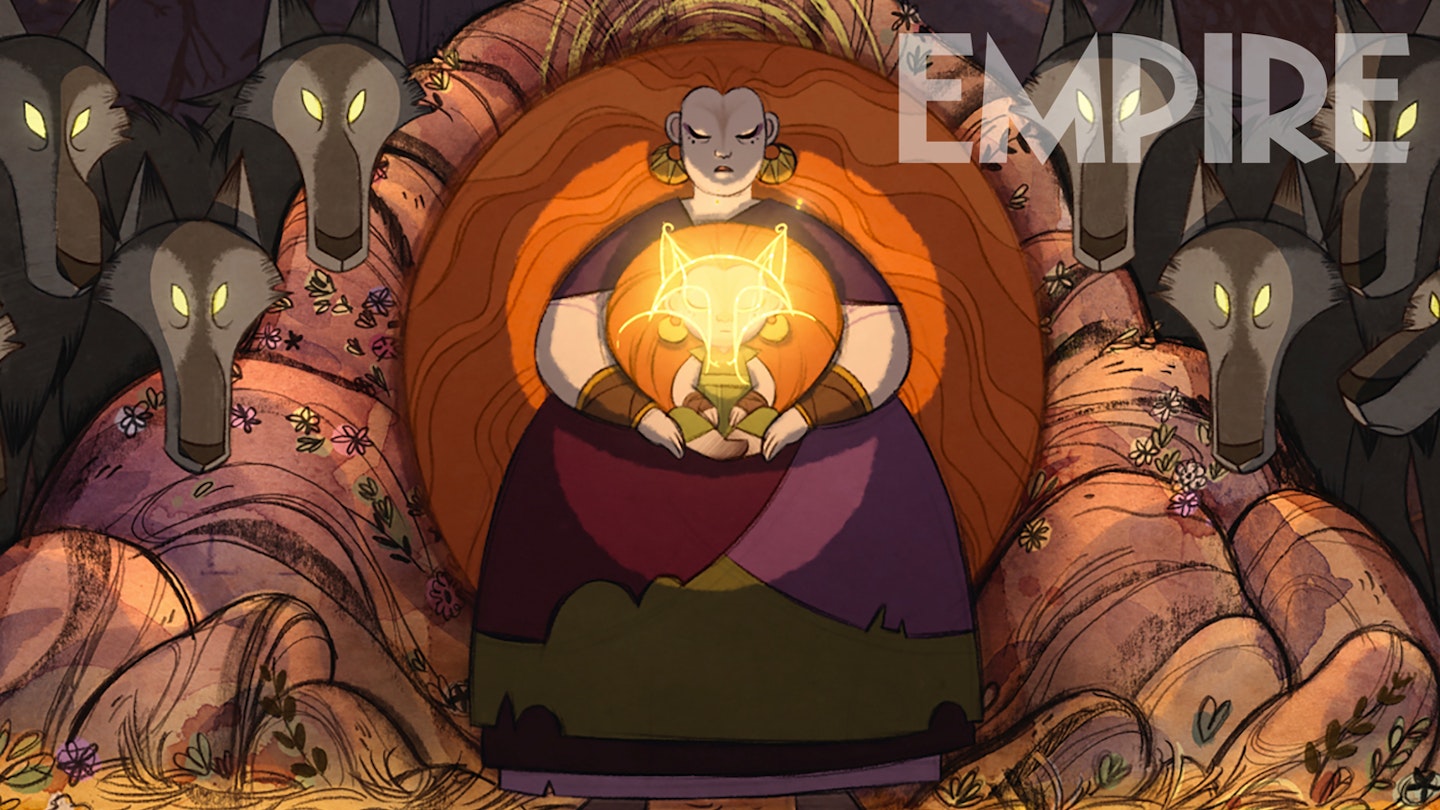Kilkenny-based animation studio Cartoon Saloon doesn’t have the budget of Pixar, the history of Disney, or the acclaim of Ghibli. But frankly, it deserves it all. With The Secret Of Kells, Song Of The Sea, The Breadwinner and now WolfWalkers, they are four for four: an extraordinary and unbroken run of sumptuous, gorgeously crafted fablistic animated tales, rich in visual flair, dramatic intrigue and thematic smarts.

This entry is directed by the studio’s co-founder, Tomm Moore, who has called WolfWalkers the third part in a loose Celtic trilogy. Like the best of Hayao Miyazaki’s output, Moore is fascinated by nature, its relationship with humanity, and how ancient folklore helps us understand that relationship. Where Song Of The Sea dealt in Selkies and Secret Of the Kells in fairies, the lore here is in the title: mysterious forest dwellers who transform themselves into wolves and hide in a magical clearing, dealing out fantastical healing powers.
If you don’t cry from the pathos, you could be moved to tears from the beauty.
The story is ostensibly quite simple: a little girl (voiced by Honor Kneafsey) befriends a WolfWalker, inadvertently becomes one, and then must defend their home from humans. And for younger viewers that’ll do just fine, thanks. But there’s a fascinating additional layer of political and historical context, building on the work done in The Breadwinner, the studio’s Afghanistan-set last film. Having the English as the baddies, during the bloody and violent Irish civil war, lends things a welcome weight.
There are obvious lessons to be learned about the impact of humans on a vulnerable environment to be had (despite the film’s happy ending, there are no longer wolves in Ireland). But the film smartly links this destructive force with a poisonous colonial power, and Simon McBurney does some delicious voice work as the villainous Oliver Cromwell, sneering with genocidal glee about how the land is wild and “must be tamed”. On the flip side is Sean Bean’s gentle giant of a Yorkshire father, torn between duties to the state and loyalties to his daughter, with heart strings not so much tugged as yanked. If the plot occasionally follows a formula (there are occasional whiffs of Pixar’s Brave), it never fails to wring genuine emotion from it.
And if you don’t cry from the pathos, you could be moved to tears from the beauty. CGI seems like a blunt and inexpressive tool stacked next to the staggeringly lush, hand-drawn imagery that unfurls in front of your eyes here: the characters move elegantly and fluidly, in harmony with the rich illustrated backdrops; there is an artful stylisation to the forest and its surroundings, and it’s not short on innovations, either (during the scenes seen from the wolf’s point-of-view, the traditional woodblock style is replaced by a thrillingly spare charcoal approach, which recalls Ghibli’s The Tale Of Princess Kaguya). In visual terms alone, it’s a masterpiece; what these animators have achieved is nothing short of magical.
